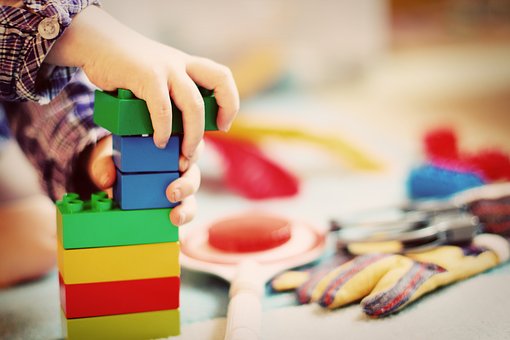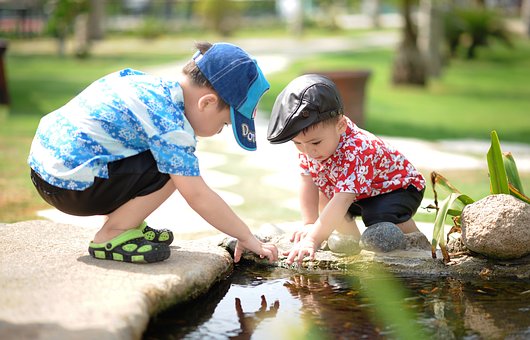I became obsessed with educational play as soon as I found out I was pregnant. What could I do in and outside of the home to help my baby’s brain and character develop in such a way that he would reach each milestone with success, and of course have the best emotional, physical, and cognitive start to life?
Economist-turned-academic Ron Ferguson has forged a career out of studying the achievement gap. It may be common knowledge that factors such as a child’s race and socioeconomic status will create a wide learning gap between kids, but Ferguson discovered that these gaps could begin to take form and become visible at the tender age of just 2.
Which brings us to: how caregivers can encourage brain development before a child starts any formal learning. Here are five cost-effective, researched, and positive ways that parents and caregivers can help support their baby’s brain development. It’s as simple as interacting with our children and being responsive to them. These five principles have been named by Ferguson as the Boston Basics
1. Maximize love, manage stress
This might seem like an obvious one but can be hard to maintain or overlooked because of its simplicity. I’m a firm believer in moms and dads really looking after their physical and emotional well-being first. A happy parent will always equate to a happy child and according to this principle of Ferguson’s, babies pick up on negative emotion, so looking after oneself and offering unfettered and limitless love and affection will have a lasting influence on a child’s development.

2. Talk, sing, and point
This is a favorite of mine, and one that I try to do daily with my little one at home. Pointing at something helps babies to start associating words with objects. Some babies point before they can talk, and singing offers fun and engaging interaction in addition to helping your baby develop their vocabulary.

3. Count, group, and compare
I was happy to learn that babies love numbers and counting, and so embrace even more the endless counting that goes on in Mandarin with Ayi, and in English with mom and dad at home and playgroups. Ferguson also suggests that parents can introduce their kids to math vocabulary by using sentences that compare things: “Oh look, dad is tall but mom is short, ” or “There are two bananas and three mangos in the fruit basket”.

4. Explore through movement and play
This idea is based on the concept that your child is always learning while playing. In my post about Mommy and Me movement classes, I have written about how moms and dads can stay active and encourage learning and bonding through music and movement, so joining a class like this one can help encourage us to support our kids’ brain development!

5. Read and discuss stories
One of my fondest and earliest memories was having stories read to me, like my childhood favorite Peace At Last by Jill Murphy (and now the chosen night-time read for my little one). There were animal and object noises, the concept of not getting enough sleep, and problem solving, all in one short story about Mr Bear who found peace at last just as the alarm bell rang in the early hours of the morning to wake him up. Ferguson says it’s never too early to start reading aloud to your kids.

Hearing words increases vocabulary and relating objects to sounds, like the noise of the owl at night in the story I was read, starts to create connections in the brain. The Basics also places importance on discussion. If there is a elephant in your story and your little one so happens to have elephant in the toy box, point it out.
Have fun using these simple but key principles to support your baby’s brain development. I know I will!
Photos: Pixabay




